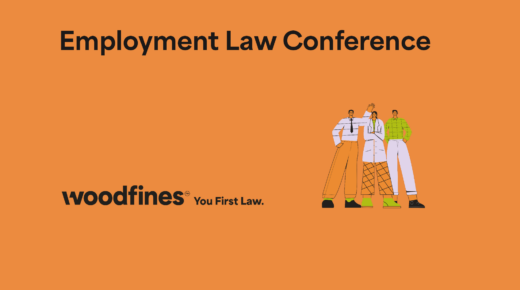Please note that this article focuses on misrepresentation and not misstatement.
Negotiating and entering into contracts can be stressful enough as it is, let alone when it appears things may have not been what they seemed. With that in mind, this article explores the legal principle of ‘misrepresentation’ and what happens when it arises.
Misrepresentation is where a false statement of fact, or law, is made by one party to another, which the other party relied upon in some way and to their detriment.
If it transpires that misrepresentation is found, then the receiving party of the false statement may have grounds to claim against the party who made such a false statement.
A misrepresentation can be made in writing, orally or even implied by words or by conduct.
How to claim
A claim for misrepresentation can be made under either:
Inducement
The false statement made must provide misleading information which influenced the other party to enter into the contract.
In other words, the receiving party was induced to enter into the contract – they must have relied upon the statement (reliance). The key element is that the other party would not have agreed to enter into such a contract, but for the statement made i.e., had the other party not made such statement, then the receiving party would not have entered into the contract.
Further, as a result of such statement, the receiving party of the false statement has now suffered a loss.
Types of Misrepresentation
There are 3 types of misrepresentation: –
Negligent Misrepresentation
Negligent misrepresentation under the Misrepresentation Act 1967 occurs where a statement is made by one contracting party to another recklessly, carelessly, or without any reasonable grounds for believing in the truth of the statement.
With negligent misrepresentation, the test is objective and concerns what would have influenced the reasonable person.
It is for the maker of the statement to establish and evidence that they reasonably believed in the truth of the statement (and that’s why they had made it). In this case, the burden of proof is therefore reversed and passed onto the offending party.
Remedies
The remedies available to the injured party of negligent misrepresentation are damages on a tortious basis and rescission – unless the Court awards damages in lieu of rescission.
Damages on a tortious basis aim to restore the claimant to the pre-incident position.
Rescission is where the contract between the parties is effectively ‘cancelled’.
Fraudulent Misrepresentation
Fraudulent misrepresentation is founded in the principle of ‘tort of deceit’. This is where the offending party intentionally and knowingly make a false statement/representation to another party, or without a belief in its truth, or recklessly as to its truth.
To ascertain whether the misrepresentation has been made on a fraudulent basis, the Court of Appeal in the case of Eco3 Capital Ltd and others v Ludsin Overseas Ltd [2013] EWCA Civ 413, set out the following elements to consider in such instances: –
The application of the above elements can be shown more recently in the case of Njord Partners SMA-Seal LP & ors v Astir Maritime & ors [2024] EWHC 1682 (Comm). As a brief outline, this case concerned the founder of a shipbreaking company and his son (who was a shareholder of the company) being held liable in deceit for false representations made to lenders in respect of securing a $45m loan.
It was shown that a Statement of Net Worth containing false representations regarding asset ownership and net worth was made with the knowledge that it contained false representations, and with the intention to induce the lenders into providing the loan facility sought (as it was a requirement of the lender that a Statement of Net Worth be given).
Remedies
The injured party of fraudulent misrepresentation may be awarded damages on a tortious basis and rescission of the contract.
Innocent Misrepresentation
Innocent misrepresentation is used to describe a statement made entirely without fault i.e., where the maker of the statement can evidence that they had reasonable grounds to believe that statement was true, at the time the statement was made. If the maker of the statement cannot prove this, then the statement may be considered to be either fraudulent or negligent misrepresentation.
Remedies
An injured party of innocent misrepresentation under the Misrepresentation Act 1967 may be awarded rescission of the contract – unless the Court awards damages in lieu of rescission under section 2(2) of the Misrepresentation Act 1967.
What to do next?
Misrepresentation is a complex area of law, and obtaining legal advice is the best solution to navigate such matters. This is particularly so as misrepresentation occurs where contracts are concerned, and it may be the case that pursuing for a breach of contract better suits your situation.
For example, the aim of pursuing under a claim for misrepresentation is to put the claimant back into the position they would have been before such misrepresentation was made. However, the aim for pursuing under a breach of contract claim is to put the claimant back into the position they would have been in had the contract been performed (carried out) properly.
If you have cause for concern regarding misrepresentation or breach of contract, our excellent disputes team provide guidance and assistance to our clients in such times of need. Contact our team today on 0344 967 2505 or at youfirst@woodfines.co.uk

Author: Woodfines Solicitors
Date: 20 March 2025
For companies with a sole director and shareholder, the death of that individual can create significant legal and operational difficulties.
Author: Woodfines Solicitors
Date: 20 March 2025
Join us for our second Employment Law Conference on Thursday 24th April, 8:00am - 1:00pm at the Bedfordshire Golf Club in Stagsden, Bedford.
Author: Woodfines Solicitors
Date: 1 November 2024
Join us at our annual Transport Conference to hear key insights and expert guidance to protect and grow your business.